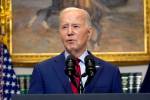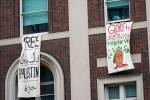Sacrificing free speech won’t appease fanatics
The founding principles of this nation are being challenged in the halls of the United Nations, where representatives of Islamic nations are clamoring for a resolution against defamation of religion. It is an ideological battle pitting free speech against those who wish to shield religions from criticism.
Secretary of State Hillary Clinton has said as much.
"The protection of speech about religion is particularly important since persons of different faith will inevitably hold divergent views on religious questions," Clinton said, quoted by The Associated Press. "These differences should be met with tolerance, not with the suppression of discourse."
But she also said the United States is opposed to negative depictions of specific faiths. Which is it?
Law professor and FindLaw.com columnist Marci Hamilton this past week called out the Obama administration for its willingness to compromise.
Michael Posner -- the assistant U.S. secretary of state for human rights, democracy and labor -- worked with Egypt to draft compromise language for the U.N. resolution that condemns religion-oriented harassment and discrimination, making a fragile distinction from defamation.
That compromise language "expresses its concern that incidents of racial and religious intolerance, discrimination and related violence, as well as of negative racial and religious stereotyping of religions and racial groups continue to rise around the world, and condemns, in this context, any advocacy of national, racial or religious hatred that constitutes incitement to discrimination, hostility or violence ..."
What might constitute incitement? Speech?
Like Clinton, it also "expresses regret at the promotion by certain media of false images and negative stereotypes of vulnerable individuals or groups of individuals ..." Danish cartoons?
Professor Hamilton says the administration, instead of compromising, should have attacked the resolution head on, reminding the world what Americans think of militant Islamists who wish to destroy America and American values.
"To take a position in favor of suppressing speech about religions -- especially at this time in history -- is to choose to put aside one of our most important weapons against death, oppression, and tyranny," she writes. "Offering a 'middle ground' cedes far more ground than the Islamic countries supporting the resolution -- especially those who are host to militant Islamicists yet fail to effectively combat them -- deserve on this point."
If you thought the United Nations was hostile to free speech, check out our college campuses.
A week ago, Geert Wilders, a Dutch lawmaker and outspoken critic of radical Islamists, spoke at two American universities, Columbia and Temple. At Temple, his security team cut short questions and escorted him away when the crowd turned ugly.
Wilders lives under 24-hour police protection. He faces prosecution in his own country and was barred from entering Britain until recently.
He was invited to Columbia by a campus Republican organization that felt obligated to apologize for Wilders' speech.
"We didn't invite him to talk about his views on Islam," the Republican students wrote in a statement, noting that the club "does not in any way endorse" his views. "We find the fact that he spent so much of his speech talking about those views regrettable, but he did explain that those views play a part in his concern for free speech."
In a Columbia campus newspaper, Adel Elsohly, a graduate student and adviser for the Muslim Students Association, penned an op-ed endorsed by a dozen student groups, including the campus Democrats club.
Elsohly first makes the obligatory homage to free speech, but then writes, "Wilders' speech, while beginning as a discussion of free discourse, soon devolved into little more than an open, vicious attack on Islam and Muslims, claiming that the ultimate goal of Islam is to conquer the world and forcibly impose itself on the conquered."
He concludes: "Don't we all deserve freedom from fear?"
Freedom from fear? When, perhaps, there really is something to fear?
In the Temple student newspaper a Josh Fernandez writes, "It's not that Temple students didn't want Wilders to exercise his right to 'tell people what they do not want to hear,' but they didn't want to hear hateful rhetoric, which -- instead of proposing a diplomatic solution -- proposed the eradication of a religious group."
I can't find where Wilders calls for eradication. Containment, perhaps.
He is known to launch into a Churchillian admonition: "We will never compromise on freedom. We will never compromise on liberty. We will never appease to Islam. We will never give in, never give up, never submit to totalitarianism again."
Those words are not welcome on campus, where multiculturalism reigns, where any strong language is labeled "hate speech," even if it is true.
The Obama administration should be more Churchill and less Chamberlain.
Thomas Mitchell is editor of the Review-Journal and writes about the role of the press, free speech and access to public records. He may be contacted at 383-0261 or via e-mail at tmitchell@reviewjournal. com. Read his blog at lvrj.com/mitchell.























